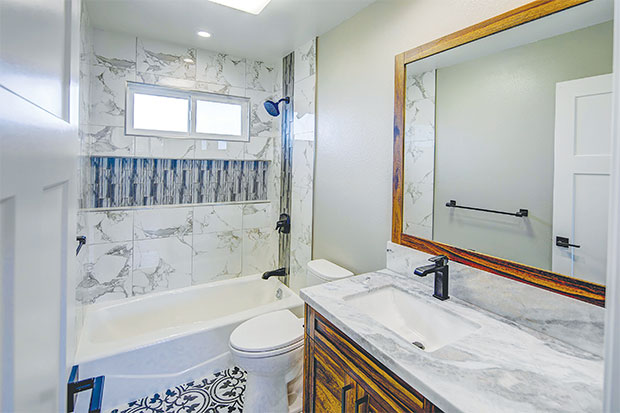Lately, Hawaii’s impossibly high cost of living has been a hot topic in local news. It’s a challenge many families have addressed by pooling their resources to create multigenerational homes in which several generations can live, often sharing expenses, chores and childcare.
“There’s only so much land on this island, and only so much new development that can happen,” says Joshua Vasconcellos, project coordinator at Atlas Construction in Honolulu. “But people still want to live in Hawaii, so they remodel, build additions, or knock down their homes and rebuild to accommodate multigenerational living.”
As Vasconcellos explains that multigenerational home projects represent a large percentage of Atlas Construction’s business, he set the scene: “Mom and Dad raise their kids; the kids get married, want to start their own families, but can’t afford to buy. So, they get together with their parents to build a larger home. We see a lot of that type of work.”
Multigenerational construction isn’t always done to accommodate new grandchildren. Sometimes the goal is to help Mom and Dad spend their golden years in their own home. “We do a lot of work for people who want to add on or alter their homes, because when they bought or built them, they could go up and down the stairs,” Vasconcellos observes. “Today, it’s a different situation.”
Against costs of $650 a month or more per keiki for childcare, and as much as $5,000-$10,000 per month for assisted living and nursing home care, multigenerational living makes perfect sense. Here are some issues to consider while planning construction.
MAKE THE DOLLARS MAKE SENSE
“If a customer can only afford $500,000, and you design a million-dollar house, you haven’t helped that family,” says Vasconcellos. “Our company helps people stay within their budgets. That’s key. We educate our clients from a real estate standpoint, tomakesurethey’redoingthe rightthingforthemselvesand their family at the right cost.”
FUNCTIONALITY MATTERS
Make sure kitchens and ground floor rooms are designed to be functional for adults aging in place, with easy-to-reach cabinets and cupboards, open floor plans whenever possible, and safer flooring.And,as Vasconcellos reminds us, multistory homes must be planned to accommodate aging generations.
“People say, ‘We want a two-story home with bedrooms upstairs, and kitchen and living room downstairs.
“I’m 44 years old, and if I built a house for myself today, I’d have at least one bedroom and bathroom downstairs.”
PRIVATE SPACES AND COMMON AREAS
Try to make sure that everybody in the family has his or her own space, but don’t forget to create areas where everybody can gather for family time and fun!
SAFETY AND ACCESSIBILITY ARE KEY
Child-proofing is important if little ones will be growing up in your house. For aging eyes, adequate lighting is important. In bathrooms, falls can be prevented with a series of safety measures.
“When we design for aging in place, we recommend installing 3-foot doors in case somebody needs a wheelchair, and building with provisions for grab bars, bench seating, and a shower that somebody can easily get in and out of,” Vasconcellos says.
GET OUTDOORS
Reduced mobility makes it hard for older folks to get outside safely. Create accessible outdoor areas with ramps equipped with handrails. Make sure they’re shaded and protected from the elements.
Thanks to quality construction and excellent customer service, Atlas has been voted “Hawaii’s Best” contractor for the past six years in Honolulu Star-Advertiser’s People’s Choice Awards. Through a careful planning process that includes monthly seminars, open houses that showcase projects in their finishing stages, and multiple meetings to gather specific information about the family’s lifestyle and needs, Atlas Construction consistently meets and exceeds expectations with its projects.
As a certified Aging In Place/Universal Design company, Atlas helps families plan for future generations.
“When we design a home, we ask a lot of questions,” Vasconcellos says. “Learning how the family will use the house today, tomorrow and in the future helps us build design options for them. I think we’re experts in understanding how people live.”
ATLAS CONSTRUCTION
CONTACT 808-951-9500
ADDRESS 2222 Kamehameha Hwy., Honolulu
WEB atlasconstruction808.com
See more articles from: Atlas Construction Inc
